Hey guys,

This next post is a really sensitive one because it is about the brain. Our brain controls the rest of our body (sorry guys, I know some of you may think it’s the heart, but it is truly the brain.) Without our brain, a lot of other bodily functions especially those involving mental processes, the nervous system, memory, and learning are affected. When your brain is affected, your entire body can be affected, which is why the brain is a pretty big deal. Think of  your brain as the cockpit in a plane, which is the control system. If things aren’t going right in the cockpit, it is most likely that the engine will fail, other things will go wrong and the plane will crash. And you never want the plane to crash. I mean, never. At least if you can help it.
your brain as the cockpit in a plane, which is the control system. If things aren’t going right in the cockpit, it is most likely that the engine will fail, other things will go wrong and the plane will crash. And you never want the plane to crash. I mean, never. At least if you can help it.
When I started chemotherapy, amongst other symptoms I experienced, a throbbing headache was one of them. But it wasn’t often and it wasn’t a big deal. At least, not at the time. In addition, it never lasted long and I used to attribute it to the long days at the hospital or the fatigue induced from treatment or maybe that I wasn’t drinking enough water (even though I was drinking a lot of water to help rid my body of the toxic drugs I had been administered.) I didn’t complain at first. I usually would just take a Tylenol, lie down, and get up after two hours or so and feel a lot better.
But then, I started to worry because I was forgetting things. I would come upstairs to my room to get something, and once I reached my door, I would realize that I couldn’t remember what it was that I had come to get. So after standing at the door for a few seconds, staring into my room with a blank look on my face, hoping that something would jolt my memory,  I would simply go back downstairs in frustration when I couldn’t remember what I had come up to get. Sometimes I would remember moments later, and sometimes not at all. Other times it would happen in conversation. I would start saying something, and midsentence, I couldn’t really remember where I was going or the point I was trying to make. So I pulled out my agenda and started using it religiously. I would write down all my to-do lists, write down goals, write down phone calls I had to return, pencil in my doctor’s appointments, and use a pill organizer inscribed with the dates and times, to make sure that I had taken all my meds (or didn’t take them twice) and that I had taken them at the right time. When I noticed this for a little while, I thought it was worth seeing a doctor about it. So I sought out a Headache clinic and complained about my symptoms. The physician performed an EEG (also known as an Electroencephalogram) which measures the electrical activity in your brain using small electrodes attached to your scalp. Your brain cells communicate with the electrodes via electrical impulses which these electrodes can detect. The electrodes are able to highlight on a scan, any unusual activity detected. So here I am at the doctor’s office. I’m bald from my hair falling off from chemo, but that’s ok because it made the nurse’s job a whole lot easier. (You see, there is always a silver lining in every cloud lol) 😂🤣
I would simply go back downstairs in frustration when I couldn’t remember what I had come up to get. Sometimes I would remember moments later, and sometimes not at all. Other times it would happen in conversation. I would start saying something, and midsentence, I couldn’t really remember where I was going or the point I was trying to make. So I pulled out my agenda and started using it religiously. I would write down all my to-do lists, write down goals, write down phone calls I had to return, pencil in my doctor’s appointments, and use a pill organizer inscribed with the dates and times, to make sure that I had taken all my meds (or didn’t take them twice) and that I had taken them at the right time. When I noticed this for a little while, I thought it was worth seeing a doctor about it. So I sought out a Headache clinic and complained about my symptoms. The physician performed an EEG (also known as an Electroencephalogram) which measures the electrical activity in your brain using small electrodes attached to your scalp. Your brain cells communicate with the electrodes via electrical impulses which these electrodes can detect. The electrodes are able to highlight on a scan, any unusual activity detected. So here I am at the doctor’s office. I’m bald from my hair falling off from chemo, but that’s ok because it made the nurse’s job a whole lot easier. (You see, there is always a silver lining in every cloud lol) 😂🤣
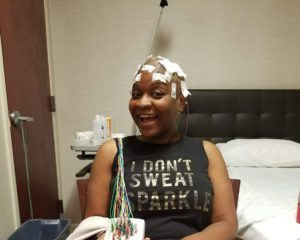
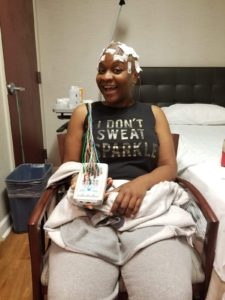
After the doctor set me up for the test, put the electrodes on my head, and performed it, the data was recorded and I was called the following day with the results of my scan. You’ll really want to hear this.
So, I left the first part of the recording in there because I just had a kick out of the Nurse mispronouncing my name 🤣😂🤣😂. It  always tickles me when I hear different variations of it. But anyway, back to my brain. Apparently, the drugs I take for my chemotherapy have a side effect that is commonly known as “Chemo brain” or “chemo fog.” Now the nurse couldn’t confirm the cause of my brain slowing down. All she could say for a fact is that it was slowing down, and it wasn’t something that could be treated. I panicked a little. Concerned about the implications of her results, I spoke to my oncologist. Apparently, it could all be explained by an infamous side effect of chemotherapy known as chemo brain. Now what is this, you might ask?
always tickles me when I hear different variations of it. But anyway, back to my brain. Apparently, the drugs I take for my chemotherapy have a side effect that is commonly known as “Chemo brain” or “chemo fog.” Now the nurse couldn’t confirm the cause of my brain slowing down. All she could say for a fact is that it was slowing down, and it wasn’t something that could be treated. I panicked a little. Concerned about the implications of her results, I spoke to my oncologist. Apparently, it could all be explained by an infamous side effect of chemotherapy known as chemo brain. Now what is this, you might ask?
Chemo brain is a common term used by chemo patients and survivors to describe thinking and memory problems that occur during and after cancer treatment.  Chemo brain is also known as chem fog, both of which describe cancer-related cognitive impairments and cognitive dysfunction. What was particularly scary to me, was that it was not treatable. Not to be a Debbie Downer here, but I felt like I was caught up between the devil and the deep blue sea. I’m damned if I do and I’m damned if I don’t. The chemotherapy is poison for a purpose; its aggressive but it will kill the cancer cells and give me my chance at life. However, the brutal treatments are now affecting my memory and leaving me with a pen and paper jotting down notes all the time so I don’t lose my mind. Literally.
Chemo brain is also known as chem fog, both of which describe cancer-related cognitive impairments and cognitive dysfunction. What was particularly scary to me, was that it was not treatable. Not to be a Debbie Downer here, but I felt like I was caught up between the devil and the deep blue sea. I’m damned if I do and I’m damned if I don’t. The chemotherapy is poison for a purpose; its aggressive but it will kill the cancer cells and give me my chance at life. However, the brutal treatments are now affecting my memory and leaving me with a pen and paper jotting down notes all the time so I don’t lose my mind. Literally.
Here I am at my most recent appointment. First, I had to register. So Christian and I caught a quick selfie in the waiting room.

Then it was time for my flush and the blood draws. The flush is to clear your port of any blood clots on the inside so that your medication can be delivered seamlessly with no obstructions. The blood draw is for labs so that they can determine if you’re in shape to get poisoned, 😂🤣😂🤣. (Where is the lie? 🤷♂️) At this particular lab, I had my numbing cream (Lidocaine) in my bag with me, but believe it or not, I forgot to put it on so on insertion, the needle felt very painful on my chest!
Then after that, it was time to check in with my doctor, and I had the opportunity to bring up the Chemo brain here.
So don’t forget, if you experience this as a patient, talk around it and avoid multi-tasking; focus on one task at a time. Just in case you’re wondering what symptoms you can expect to see in a patient or loved one with chemo brain, I have taken the liberty to list a few here for you:
1.) Reduced mental ability (not to be confused with mental retardation. Mental retardation involves limitations in present functioning that starts before age eighteen, and can present with an inability to effectively communicate or care for oneself.)
2.) Extreme difficulty focusing or concentrating on a task. Most patients are not able to multi-task, and for this reason, they are advised to start a task until its completion before engaging in another task.
3.) Fatigue is a common symptom seen and rest seems to be a reasonable solution to solve it. Sleep disruption as a result of chemo fog can add to the fatigue. Patients are usually advised to practice good sleeping habits: sleep at a regular time, turn off the lights, and turn off televisions and phones to prevent interruptions once you start sleeping.
4.) Patients with chemo brain can sometimes be very confused. They are sometimes unable to cope with noise or media or conversations and this can make it difficult for them to go out and socialize with family and friends. Making lists of things to do each day can help, and asking others for clarification during a conversation when things are not understood can help.
Because Chemo-brain has a spectrum of different cognitive impairments that each person can deal with, and because it is not treatable and can only fade with time, it is important for patients to delegate tasks that they are unable to complete and ask for help, guidance or direction as needed.
Expressing what you are going through with one’s spouse, family and friends can give them the willingness to assist you when they can and to be more understanding of your condition. Most especially, accepting your current state, and knowing that once a person gets off the chemo drugs, their mental state will return to normal, can give a patient hope about the future. Chemo brain can sometimes last anywhere from six months to a year, but cognitive processes usually return to their state prior to chemo.
In my case, fatigue, forgetfulness, and the occasional headache seemed to be the most frequent symptoms I experienced. I made sure I wrote lists of goals I wanted to achieve the night before. I kept a journal where I scribbled anything of importance I wanted to tell someone. This was my reminder. I drank a lot of water not only for the drug toxicity but also to prevent dehydration which can sometimes lead to headaches as well. And when I sensed the pending throbbing in my temples I would hit it immediately with a dose of Tylenol or Aleve, and lots of rest and quiet.
Have you, or do you know someone, a friend, patient or even survivor who has experienced or is experiencing chemo brain? This is a safe space for sharing and caring. Be sure to let me know what worked for [you or] them in the comment section below and how they coped with their condition.
And this is me after chemo that day. A little beat, but still standing, or should I say lying?
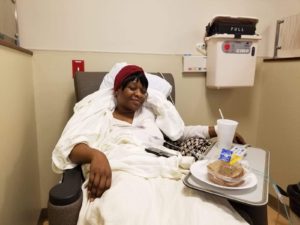
I’m tired but you know me… I’m too legit to quit!
Here’s to making great memories, literally, and figuratively.
Peace guys, I’m out!

Love, light, and keeping up the fight,
Mabih♥
“I’m praying for you.”
“I’m paying, for you.”
Are you, really?
In my next post, I tell you how to support someone with cancer other than praying and paying for them.
To see anything else that you’ve missed previously, be sure to visit the contents page.
Go on, get your shoes on and start walking with me…



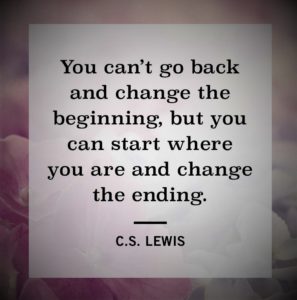
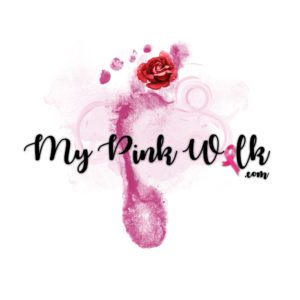
My Mabs, a prayer for you: O loving and merciful Infant Jesus of Prague, You have the power to heal my beloved friend Mabih if you wish to do so. Do not prolong it, Divine protector. Stretch out your divine hands over her head and take away all the pains and infirmity, for you are almighty. Amen! Love you girl, you are so brave! 😘🥰😍